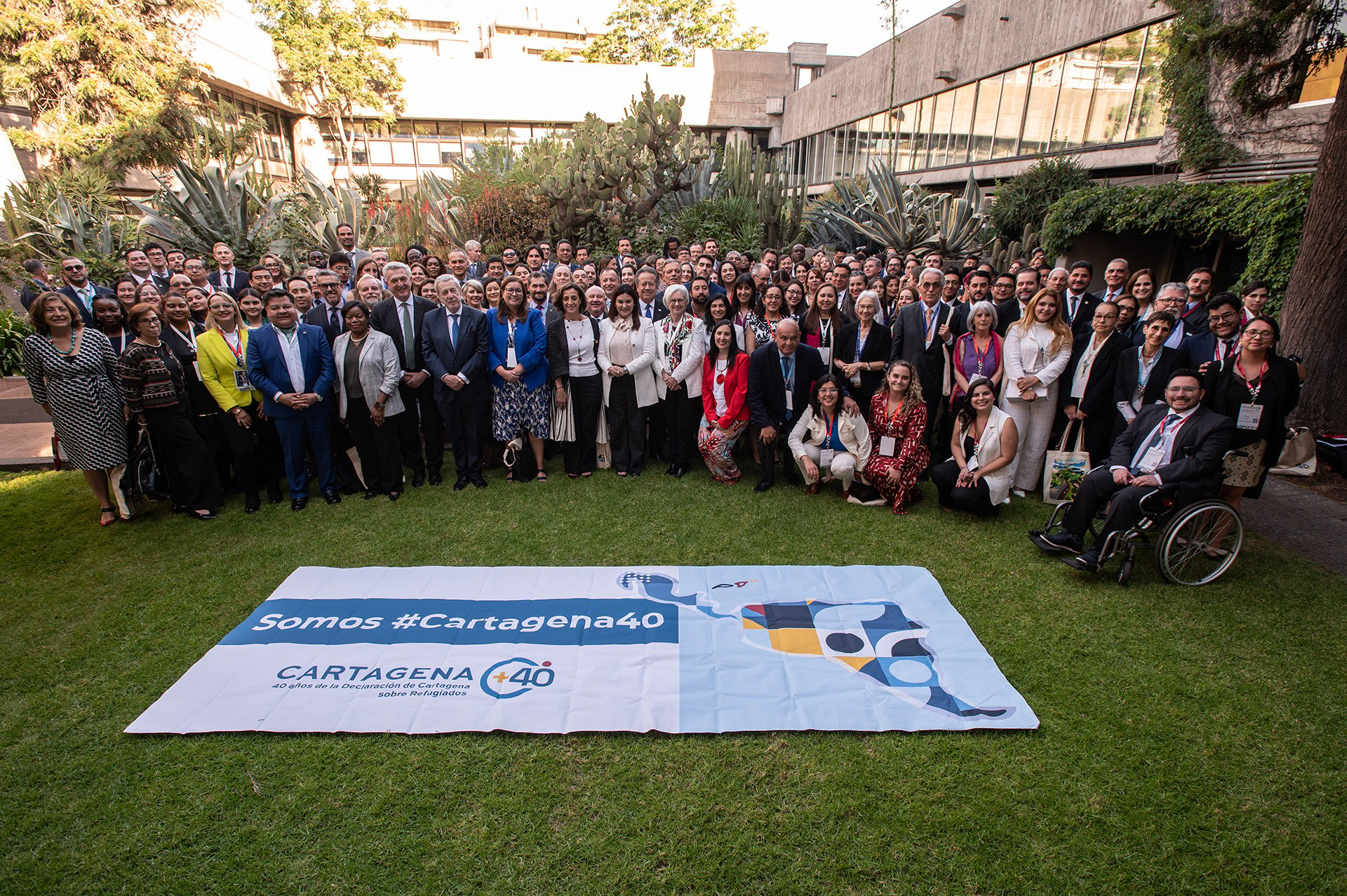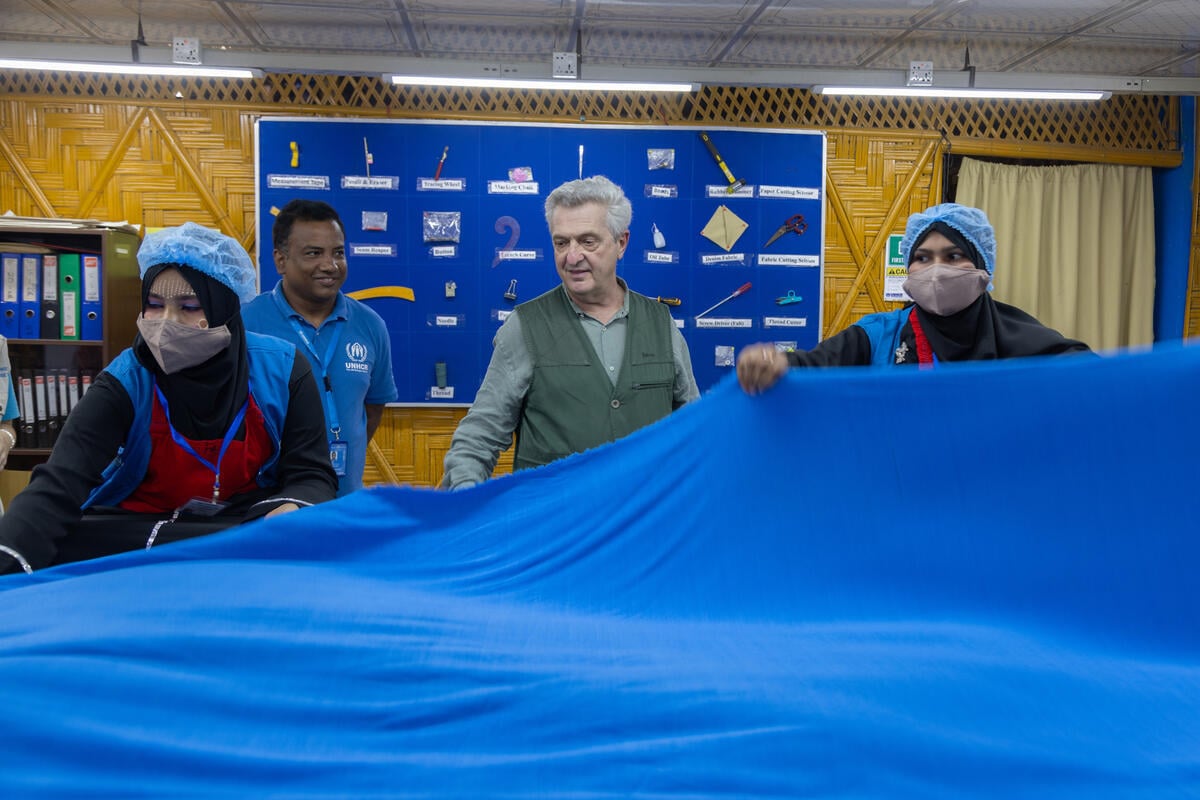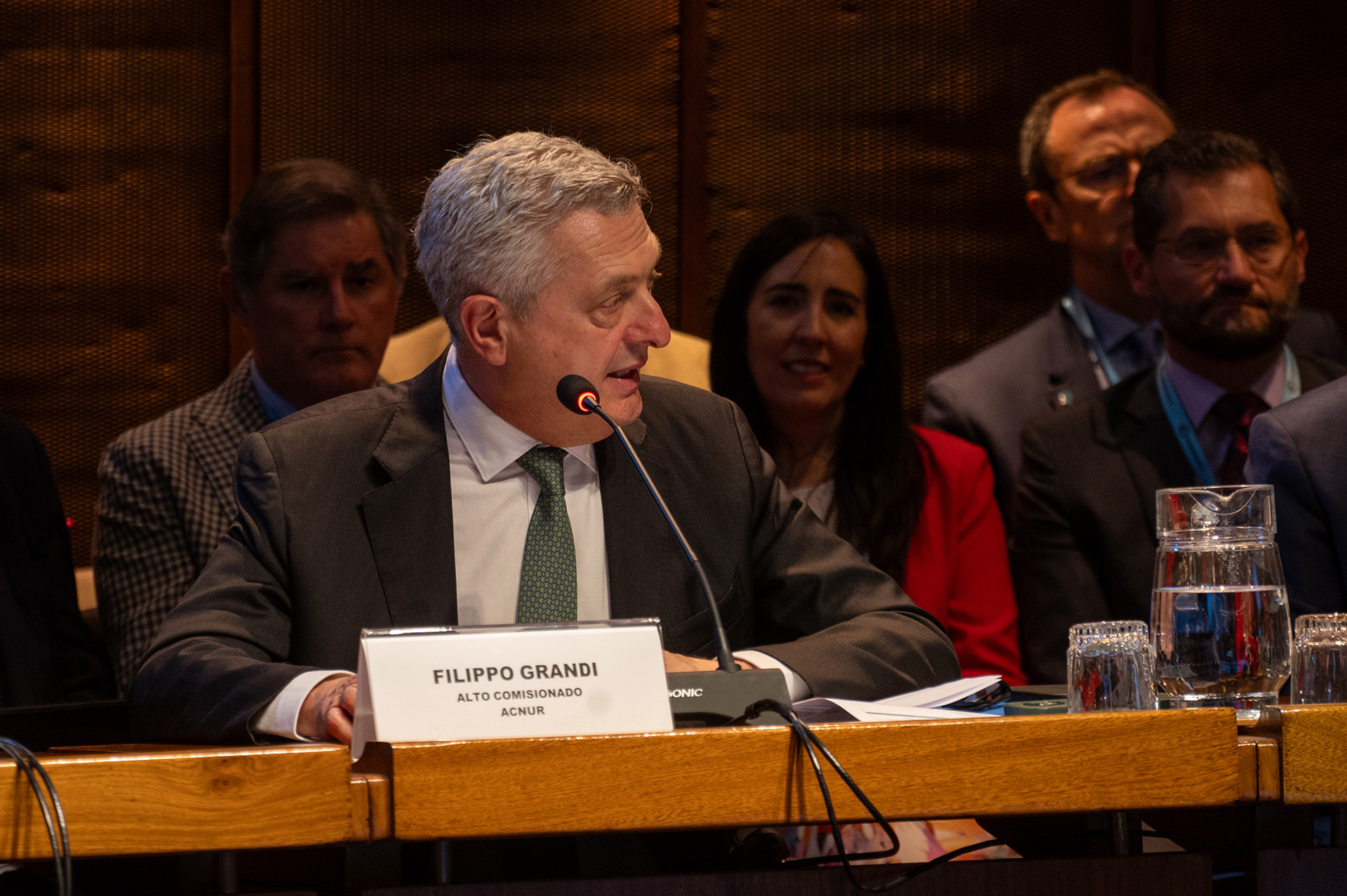Cartagena+40: The Chile Declaration and Plan of Action consolidate regional leadership in the protection of refugees, displaced and stateless people
Cartagena+40: The Chile Declaration and Plan of Action consolidate regional leadership in the protection of refugees, displaced and stateless people

Participants at the Cartagena+40 event in Santiago de Chile during the adoption of the Declaration and Plan of Action of Chile 2024-2034.
SANTIAGO DE CHILE – Today, by adopting the Chile Declaration and Plan of Action, countries in Latin America and the Caribbean have renewed their commitment to solidarity, protection and sustainable solutions for refugees, displaced people and stateless people in the region. Its adoption marks the high point in commemorations of the 40th anniversary of the 1984 Cartagena Declaration on Refugees, one of the world’s most significant regional strategic frameworks for protection and solutions.
The Chile Declaration and Plan of Action will guide States over the next decade through common responses to the challenges faced by refugees, displaced people and stateless people, considering the extent and complexity of forced displacement in the region and specific circumstances in countries of origin, transit, destination and return.
“This process will pave the way throughout the next decade, as it will incorporate innovative ways to tackle current challenges. Although governments’ main responsibility is to offer protection and solutions, we must coordinate the efforts of multiple actors,” said Alberto van Klaveren, Chilean Minister of Foreign Affairs. “Today, by adopting the Chile Declaration and Plan of Action, we reaffirm our commitment to facing current challenges. Additionally, we look towards the future and uphold the Cartagena Process tradition, which consists of seizing innovative and strategic solutions to protect and assist refugees, displaced people and stateless people in the region.”
The Chile Declaration and Plan of Action proposes a comprehensive approach to disaster-induced displacement. Moreover, it fosters formal employment through regional business networks and promotes the use of advanced technology, including the digitalization of asylum systems, as well as the use of biometric data to speed up refugee status determination procedures.
Concrete actions have been recommended as a result of consultations conducted throughout 2024 as part of the Cartagena+40 Process. The consultations brought together Governments, refugee- and displaced-led organizations, local authorities, civil society, national human rights organizations, academia, international organizations, the private sector, development actors, and financial institutions. They addressed three key topics: the protection of people on the move, inclusion and integration through sustainable solutions, and protection in the context of disasters.
“The Cartagena Process symbolizes the humanitarian and apolitical work undertaken by UNHCR. I am convinced that most of the challenges faced by the region with regard to refugees, displaced people and stateless people can only be tackled through coordination between global, regional, and national efforts. This is the spirit of Cartagena, which remains as relevant today as it was 40 years ago,” said Filippo Grandi, United Nations High Commissioner for Refugees.
The Chile Declaration and Plan of Action has been adopted amid challenging times for Latin America and the Caribbean, where forced displacement has reached unprecedented levels due to persecution, violence, insecurity, inequalities and lack of socioeconomic opportunities – a situation compounded by climate change and climate-related disasters.
Simultaneously, host countries and communities have shown solidarity and made significant achievements as regards protection and solutions. These efforts will be strengthened by concrete actions, as proposed in the Chile Declaration and Plan of Action.
In line with the 2018 Global Compact on Refugees, the Chile Declaration and Plan of Action engages multiple stakeholders under a comprehensive approach across all displacement phases from a human rights perspective – based on responsibility sharing, solidarity and international cooperation.
The Plan of Action seeks to strengthen the protection of refugees, displaced people and stateless people by improving screening systems, data management, assistance programmes, and technological innovation in asylum systems. It will also foster temporary regularization procedures that uphold the right to seek asylum and contribute to the eradication of statelessness.
Furthermore, the Plan of Action aims to improve access to basic services, employment, identity documents and inclusion. It promotes the validation of diplomas, job training, and the creation of employment networks in collaboration with the private sector. It also fosters resettlement, family reunification, and safe return programmes. Notably, the Plan is not only promoting local integration within host countries and reintegration in countries of origin, but it also aims to encourage the participation of local communities in policymaking.
For people displaced in the context of disasters and the adverse effects of climate change, the new Plan of Action recommends implementing early warning systems, appropriate legal frameworks, evacuation plans, and solidarity strategies that integrate risk management and strengthen community resilience and adaptation.
Lastly, this new regional framework establishes an innovative Follow-up and Coordination Mechanism for the Implementation of the Plan of Action. Chile will lead it over the next decade, with a rotating vice-presidency and the support of the UN Refugee Agency as Technical Secretariat. To coordinate and monitor actions – avoiding duplication and promoting regional harmonization – governments, civil society and other key actors will participate in the mechanism. This approach seeks to ensure that the implementation of the Plan of Action is flexible, efficient and sustainable.
The Chile Declaration and Plan of Action – which is also a tool for implementing the 2018 Global Compact on Refugees in Latin America and the Caribbean – urges the international community to support the efforts of host countries and other actors in implementing its programmes and recommendations, thus reinforcing regional leadership in protecting and finding sustainable solutions for refugees, displaced people and stateless people.
For further information, please contact:
In Santiago de Chile:
- Rossana Chavez, UNHCR, chvez@unhcr.org +56 9 4297 0921
- Verónica Arqueros, Ministry of Foreign Affairs of Chile, varqueros@minrel.gob.cl, +56 9 4209 4146
In Panama:
- Luiz Fernando Godinho, UNHCR, godinho@unhcr.org +507 6356 0074








